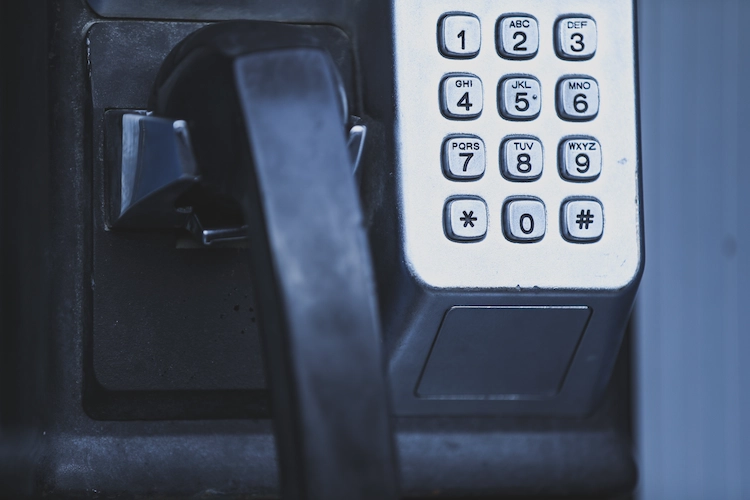Supreme Court Clarifies Structural-Error Doctrine in Weaver v Massachusetts

In Weaver v Massachusetts, 582 U. S. ____ (2017), the U.S. Supreme Court held that “structural error” requires a showing of prejudice when raised via an ineffective assistance claim. The decision provides clarity regarding the intersection of the doctrines of structural error and ineffective assistance of counsel.
In the direct review context, the Supreme Court has treated courtroom closure as a structural error, i.e., an error entitling the defendant to automatic reversal without any inquiry into prejudice. However, the Court had not previously addressed whether the prejudice inquiry is altered when the structural error is raised in the context of an ineffective-assistance-of-counsel claim.
Structural-Error Doctrine
As explained in the Court’s opinion, a constitutional error that “did not contribute to the verdict obtained” is generally considered harmless, which means the defendant is not entitled to reversal. However, a structural error, which “affect[s] the framework with- in which the trial proceeds,” Arizona v. Fulminante, 499 U. S. 279 (1991), defies harmless error analysis. Thus, when a structural error is objected to and then raised on direct review, the defendant is entitled to relief without any inquiry into harm.
Facts of Weaver v Massachusetts
When petitioner Kentel Weaver was tried for murder in a Massachusetts trial court, the courtroom could not accommodate all the potential jurors. As a result, for two days of jury selection, an officer of the court excluded from the courtroom any member of the public who was not a potential juror, including petitioner’s mother and her minister. Defense counsel neither objected to the closure at trial nor raised the issue on direct review. Petitioner was convicted of murder and sentenced to life in prison.
Five years later, Weaver filed a motion for a new trial in state court, arguing that his attorney had provided ineffective assistance by failing to object to the courtroom closure. The trial court ruled that he was not entitled to relief, and the Massachusetts Supreme Judicial Court affirmed. Although it recognized that the violation of the right to public trial was a structural error, it rejected petitioner’s ineffective-assistance claim because he had not shown prejudice.
Majority’s Decision in Weaver v Massachusetts
The majority of the Supreme Court agreed. It held that “[i]n the context of a public-trial violation during jury selection, where the error is neither preserved nor raised on direct review but is raised later via an ineffective-assistance-of-counsel claim, the defendant must demonstrate prejudice to secure a new trial.” Justice Anthony Kennedy wrote on behalf of the seven-member majority.
According to the majority, “the proper remedy for addressing the violation of the right to a public trial depends on when the objection was raised.” If an objection is made at trial and the issue is raised on direct appeal, the defendant generally is entitled to automatic reversal. However, if the defendant does not preserve a structural error on direct review, but raises it later in the context of an ineffective-assistance claim, the defendant generally bears the burden to show deficient performance and that the attorney’s error prejudiced the defense.
“Not every public-trial violation will lead to a fundamentally unfair trial. And the failure to object to that violation does not always deprive the defendant of a reasonable probability of a different outcome,” Justice Kennedy explained. “Thus, a defendant raising a public-trial violation via an ineffective- assistance claim must show either a reasonable probability of a different outcome in his or her case or, as assumed here, that the particular violation was so serious as to render the trial fundamentally unfair.”
Citing Strickland v. Washington, 466 U. S. 668 (1984), the majority argued that the rationale for placing the burden on the petitioner “derives both from the nature of the error and the difference between a public-trial violation preserved and then raised on direct review and a public-trial violation raised as an ineffective-assistance claim.”
Justice Kennedy further wrote:
When a defendant objects to a courtroom closure, the trial court can either order the courtroom opened or explain the reasons for keeping it closed, but when a defendant first raises the closure in an ineffective-assistance claim, the trial court has no chance to cure the violation. The costs and uncertainties of a new trial are also greater because more time will have elapsed in most cases. And the finality interest is more at risk. These differences justify a different standard for evaluating a structural error depending on whether it is raised on direct review or in an ineffective-assistance claim.
The Dissent in Weaver v Massachusetts
Justice Stephen Breyer wrote a dissenting opinion joined by Justice Elena Kagan. Justice Breyer argued that he would not “give lower courts the unenviably complex job of deciphering which structural errors really undermine fundamental fairness and which do not,” concluding that “the game is just not worth the candle.
Previous Articles
Supreme Court Rejects Moment of Threat Doctrine in Deadly Force Case
by DONALD SCARINCI on June 30, 2025
In Barnes v. Felix, 605 U.S. ____ (2025), the U.S. Supreme Court rejected the Fifth Circuit Court o...
SCOTUS Holds Wire Fraud Statute Doesn’t Require Proof Victim Suffered Economic Loss
by DONALD SCARINCI on June 24, 2025
In Kousisis v. United States, 605 U.S. ____ (2025), the U.S. Supreme Court held that a defendant wh...
SCOTUS Holds Wire Fraud Statute Doesn’t Require Proof Victim Suffered Economic Loss
by DONALD SCARINCI on June 17, 2025
In Kousisis v. United States, 605 U.S. ____ (2025), the U.S. Supreme Court held that a defendant wh...
The Amendments
-
Amendment1
- Establishment ClauseFree Exercise Clause
- Freedom of Speech
- Freedoms of Press
- Freedom of Assembly, and Petitition
-
Amendment2
- The Right to Bear Arms
-
Amendment4
- Unreasonable Searches and Seizures
-
Amendment5
- Due Process
- Eminent Domain
- Rights of Criminal Defendants
Preamble to the Bill of Rights
Congress of the United States begun and held at the City of New-York, on Wednesday the fourth of March, one thousand seven hundred and eighty nine.
THE Conventions of a number of the States, having at the time of their adopting the Constitution, expressed a desire, in order to prevent misconstruction or abuse of its powers, that further declaratory and restrictive clauses should be added: And as extending the ground of public confidence in the Government, will best ensure the beneficent ends of its institution.





